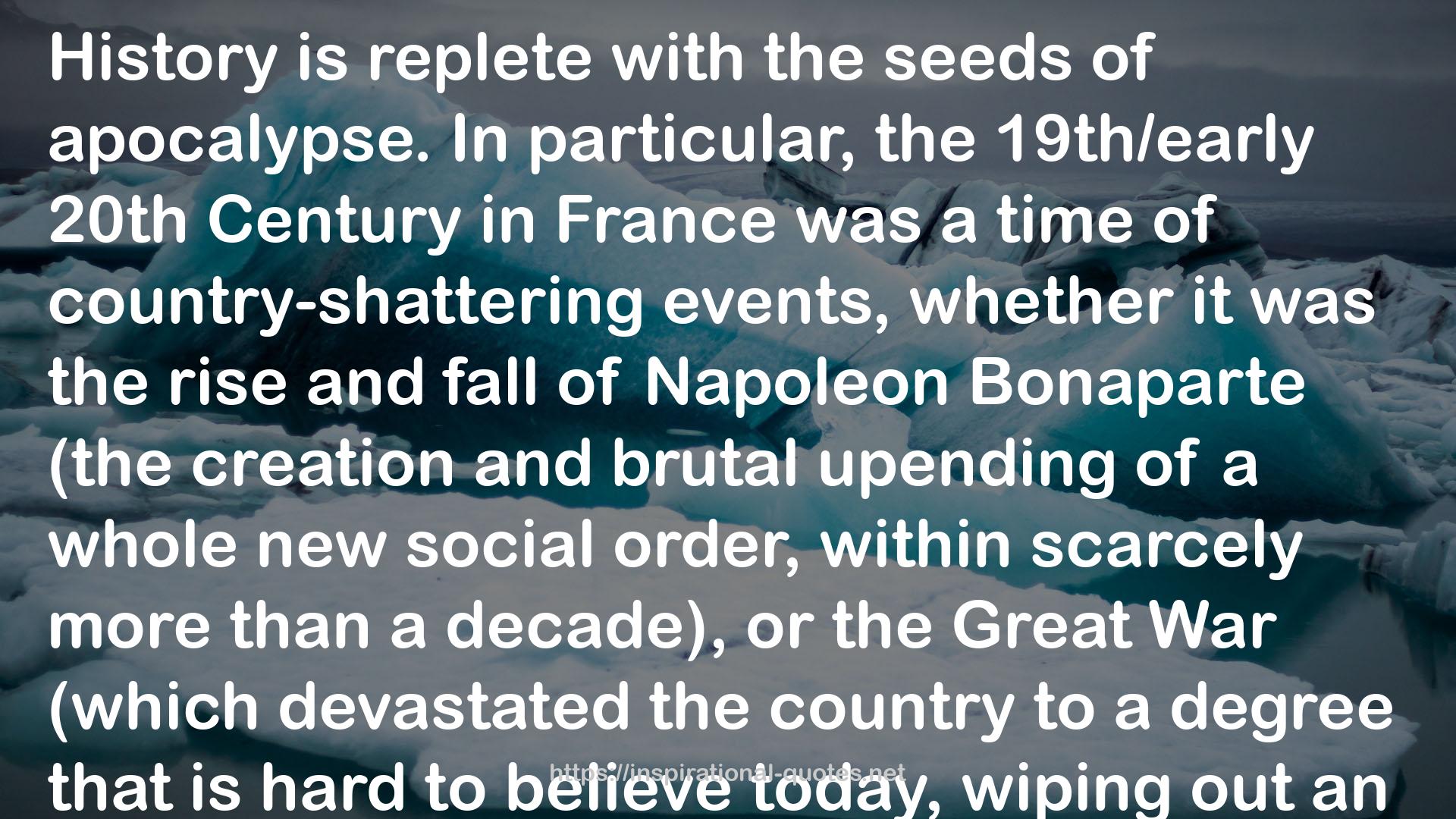" History is replete with the seeds of apocalypse. In particular, the 19th/early 20th Century in France was a time of country-shattering events, whether it was the rise and fall of Napoleon Bonaparte (the creation and brutal upending of a whole new social order, within scarcely more than a decade), or the Great War (which devastated the country to a degree that is hard to believe today, wiping out an entire generation in the trenches). It was no great stretch to imagine a magical war engulfing Europe in 1914, and leaving Paris as a field of ruins filled with magical booby traps–the familiar monuments destroyed, the Seine overflowing with the residue of spells.
It’s no secret that I’m fascinated by the narrative of war, and of recovery after war: how people struggle to rebuild lives and go on in the wake of world-shattering devastation; how the past can still cast a long, terrible shadow over everything; how the years before the war become a golden thing, regardless of how many injustices and hardships might have been happening then. I’m equally fascinated by history–the narratives that get preserved and enshrined, the stories that are passed down; and the speed with which some things get forgotten while others endure for generations. For me, the vocabulary and tropes of post-apocalypse were a great way to tackle those subjects, and to imagine what would happen in a city that had such a traumatic event in its past. "
― Aliette de Bodard
Image for Quotes

